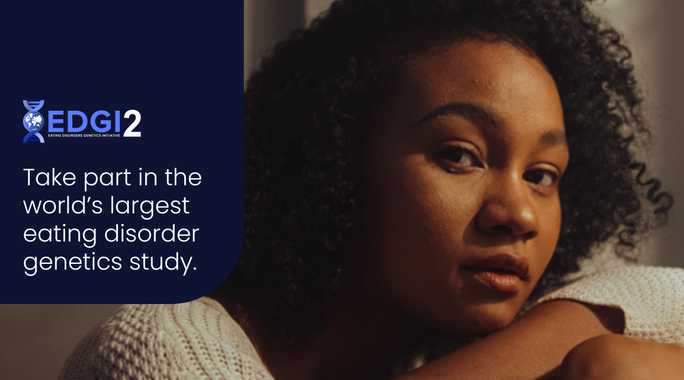
Health
Decoding the genetics of eating disorders to identify risk and transform treatment
19 May, 2025
Triple Olympian Lisa Curry AO is fronting a national appeal for 4,000+ adults with lived experience of an eating disorder to join the world’s largest genetics investigation into the risk factors driving these complex illnesses.
The Eating Disorders Genetics Initiative 2 (EDGI2) aims to pinpoint the hundreds of genes influencing a person’s risk of developing anorexia nervosa, bulimia nervosa, binge-eating disorder and Avoidant Restrictive Food Intake Disorder (ARFID), to improve treatment, and save lives.
Ms Curry is supporting EDGI2 due to the heartbreaking loss of her daughter, Jaimi, to long-term health challenges, including anorexia nervosa. Her appeal for EDGI2 volunteers coincides with an article just published in MJA Insight+ revealing how the complex interplay of genetic, environmental and psychological factors in eating disorders has hindered effective treatment breakthroughs.
“Eating disorders remain among the most stigmatised mental health conditions. This stigma often prevents people from seeking help, making things worse,” said Ms Curry.
“Individuals and families affected by eating disorders deserve answers, earlier intervention, and personalised treatments that work.”
InsideOut Institute for Eating Disorders' Director and EDGI2 Australia Chief-Investigator Professor Sarah Maguire explains that eating disorders can affect people of any age, weight, size, shape, cultural background, or identity, and significantly compromise quality of life.
“They impact the individual and their family in just about every way possible – professionally, personally, emotionally and psychologically,” Professor Maguire said.
“Eating disorders can also have serious medical consequences. They have a strong link to depression, anxiety, obsessive-compulsive symptoms, social isolation, and sometimes, suicide.”
“Importantly, eating disorders are treatable. Research advances like EDGI2, which enhance understanding of genetic and environmental factors, along with early detection and personalised treatment, are key to recovery and improved patient management.”
According to Head of the Genetic Epidemiology Laboratory, QIMR Berghofer and Lead Australian EDGI2 Investigator, Professor Nick Martin, this new study builds on the ground-breaking progress of the original EDGI investigation and the collaborative Anorexia Nervosa Genetics Initiative (ANGI), which identified the first eight genes linked to anorexia nervosa, highlighting both psychiatric and metabolic causes of the illness.
“This discovery was completely unexpected and requires urgent replication and further study to fully understand the pathways leading to anorexia nervosa.
“That’s why a larger sample size is crucial, which is the aim of EDGI2,” said Professor Martin.
“While rigorous research shows genes account for more than half the risk of eating disorders, we still lack understanding and accurate tools to predict their progression, or response to treatment.”
The world-leading geneticist explains EDGI2’s strength will lie in its unprecedented scale and diverse, multi-country sample.
“Large-scale studies like EDGI and ANGI have demonstrated the genetic basis of eating disorders, and helped identify variations that can calculate an individual’s genetic risk,’ Professor Martin said.
“A larger, more diverse sample will enhance our understanding of genetic risks, vulnerabilities, and protective factors, leading to earlier, more personalised treatments, and better predictions of disease progression and future risk.”
Participation in EDGI2 involves:
Providing informed consent and completing a short, 15–20 minute online survey at edgi2.org
Following core survey completion, eligible participants will be asked to donate a saliva sample.
Researchers sending a saliva collection kit together with a pre-paid return envelope to selected participants.
EDGI2 researchers extracting DNA from saliva samples to identify specific genes associated with eating disorders.
If you would like to take part in the EDGI2 study, please take the survey here.
If you suspect you, or a loved one, may be living with an eating disorder, speak to your local healthcare practitioner without delay, or head to insideoutinstitute.org.au to complete an online screener and assessment, and to access more information and professional support.
Australian professional patient support services offering 24/7 helpline services include:
Butterfly National Helpline: 1800 334 673
Beyond Blue: 1300 22 4636
LifeLine: 13 11 14
Men’s Line Australia: 1300 78 99 78
Kids Help Line: 1800 55 1800